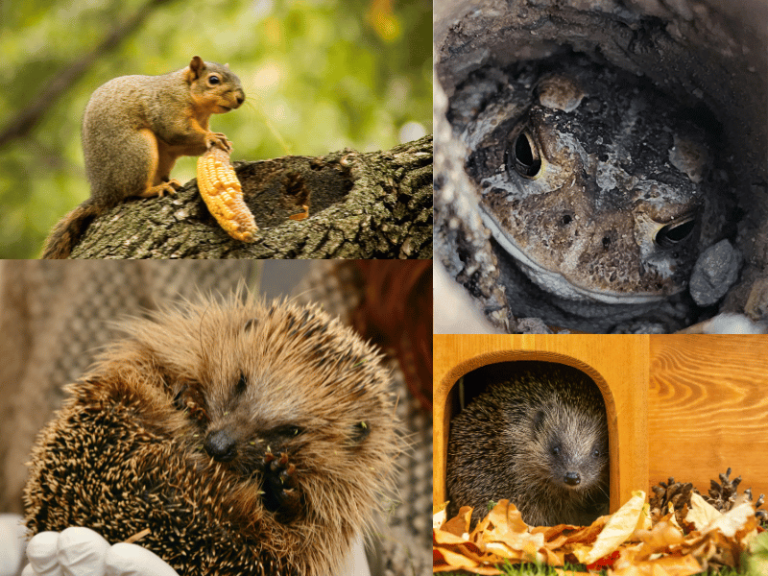When the climate gradually becomes colder and food becomes scarce, many animals undergo hibernation. Therefore, hibernation is a method by which animals adapt to adverse environments in order to survive.
During hibernation, animals can survive without eating for the entire winter. This is because long before hibernation begins, many animals actively prepare by accumulating nutrients, especially fats, in their bodies starting from autumn. By the time hibernation begins, they have accumulated a considerable amount of nutrients, appearing quite obese. These accumulated nutrients are sufficient to meet their body’s needs throughout the hibernation period.
Despite accumulating a large amount of nutrients in their bodies, hibernation periods can last for several months. How do they manage? During hibernation, animals remain in their nests without eating or moving much, or they reduce their activity significantly. Their breathing rate decreases, blood circulation slows down, and metabolism becomes extremely weak. As a result, the consumption of nutrients is greatly reduced. The stored nutrients in their bodies are sufficient and accurately calculated to sustain them throughout the hibernation period. When the stored nutrients are nearly depleted, it signals the end of hibernation. After hibernation, animals appear very thin and weak. They consume large amounts of food to replenish their nutrients, quickly restoring their body to normal conditions.

